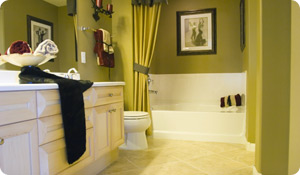
Nocturia, a condition that causes you to take several trips to the bathroom during the night because of an excessive need to urinate, not only disrupts your sleep cycle but could be a sign of a more serious medical problem.
If you wake up several times a night because you have to urinate and this is becoming a habit, one thing is for certain. You're losing valuable sleep, and you may be at risk of hurting yourself on the trip to and from the bathroom, especially if it's dark or you're in a hurry. It's also just downright annoying.
Nocturia has many possible causes, from simply drinking too many caffeinated or alcoholic beverages late in the day to kidney or congestive heart failure. Bladder and urinary tract infections or obstructions, diabetes, high levels of blood calcium, sleep disorders such as obstructive sleep apnea, enlarged prostate and some medications, such as diuretics, can also cause excessive nighttime urination. A study published in a 2010 issue of the Journal of the American Geriatric Society found that high blood pressure, age and use of diuretic medications can all cause excessive nighttime urination in older people, regardless of how much fluid or caffeine is consumed.
As if the need to get up at least two or three times during the night isn't bothersome enough, you may also suffer from urge incontinence, which is an urge to urinate so powerful and unexpected, you may not make it to the bathroom without leaking urine on the way. Urge incontinence is generally the result of an overactive bladder, and it is more common in women than in men. Although a frequent and urgent need to urinate is usually associated with age, it can begin in early adulthood.
Occasional bouts of nocturia are usually of little concern, but if you have a chronic problem, you should speak to your doctor to rule out any underlying medical conditions or to see if any medications you are taking should be adjusted. You may be referred to a specialist. A urologist or urogynecologist can perform bladder tests to confirm a diagnosis and recommend treatment options.
Treatments for nocturia include cutting back on fluids later in the day, along with a behavioral program designed to help you control how much fluid you take in overall and how much you excrete. If necessary, your doctor may prescribe medication that will decrease the number of times you get up to urinate during the night.
Sources:
Bliwise, DL et al. "Nocturia and Disturbed Sleep in the Elderly." Sleep Medicine 10 (2009) 540-548. 13 Aug 2008. Web. 10 Mar 2011.
http://www.ncbi.nlm.nih.gov/pubmed/18703381
Johnson, TM, et al. "Evaluating Potentially Modifiable Risk Factors for Prevalent and Incident Nocturia in Older Adults." Journal of the American Geriatric Society 2005 Jun;53(6):1011-6. Jun 2005. Web. 10 Mar 2011.
http://www.ncbi.nlm.nih.gov/sites/entrez?cmd=retrieve&db=pubmed&list_uids=15935026&dopt=citation
University of Maryland Medical Center: Urination-Excessive at Night. 30 Sep 2009. Web. 10 Mar 2011.
http://www.umm.edu/ency/article/003141.htm
Washington University: Nocturia (Nighttime Voiding) Web. 10 Mar 2011.
http://bladder.wustl.edu/obgyn/urogyn.nsf/WV/295FE323EDD946928625717F004C3879?OpenDocument





